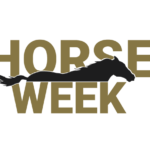June 29, 2012–State and local health authorities are warning residents to take particular precaution to avoid mosquitoes after confirming that Eastern Equine Encephalitis is active in Palm Beach County.
This morning state agriculture officials confirmed that a sick horse that was put down in Wellington last week was suffering from Eastern Equine Encephalitis and the mosquito that transmits this virus has been found in local traps.
The virus, referred to as EEEV, is one of a group of viruses that is transmitted by mosquitoes and can cause inflammation of the brain.
The mosquito that carries this virus is generally not found in South Florida, preferring the deep swamps to our north, said Palm Beach County Health Department spokesman Tim O’Connor.
When horses in the county come down with this illness, they generally have been infected while traveling out of the area, but the Wellington case happened in an unvaccinated horse that had not traveled in the month before becoming sick, reported Dr. Mary Echols of the state’s Department of Health.
This year in Florida, there have been eight horses and 14 sentinel chickens infected with the virus in 10 counties, according to the state’s press release this morning.
No human in the state was infected with EEEV in 2011, according to the department of health, but four people were infected in 2010. Those cases were reported in Hillsborough, Wakulla and Leon counties.
But EEEV isn’t the only mosquito borne illness. In 2011, 24 people were diagnosed with West Nile Virus they acquired while in Florida and seven people acquired dengue – two of those cases originated in Palm Beach County.
While horse can easily, and cheaply, be vaccinated against the illness, no vaccination exists for humans. The time between being bitten and when the illness begins ranges from four to 10 days, according to the Centers for Disease Control. Some people may never show sign of infection while others will be stricken with symptoms including chills, fever, headache and vomitting. The illness can last two to three weeks. The CDC reports about one third of all people with EEE die from it.
The heavy rains across the county and all of South Florida may signal a jump in the mosquito population as their eggs hatch in standing water.
“Residents and visitors need to take precautions to prevent mosquito bites,” Palm Beach County Health Department Director Dr. Alina Alonso said.
No person in Palm Beach County has ever died from EEEV, O’Connor noted.
The county’s Division of Mosquito Control is scheduled to begin an aerial assault on the insects Monday at sundown, covering 270,000 acres west of Military Trail from Jupiter to Boca Raton and in the Glades.
Palm Beach Gardens officials have also announced plans to spray at dusk July 2, 3 and 5.





